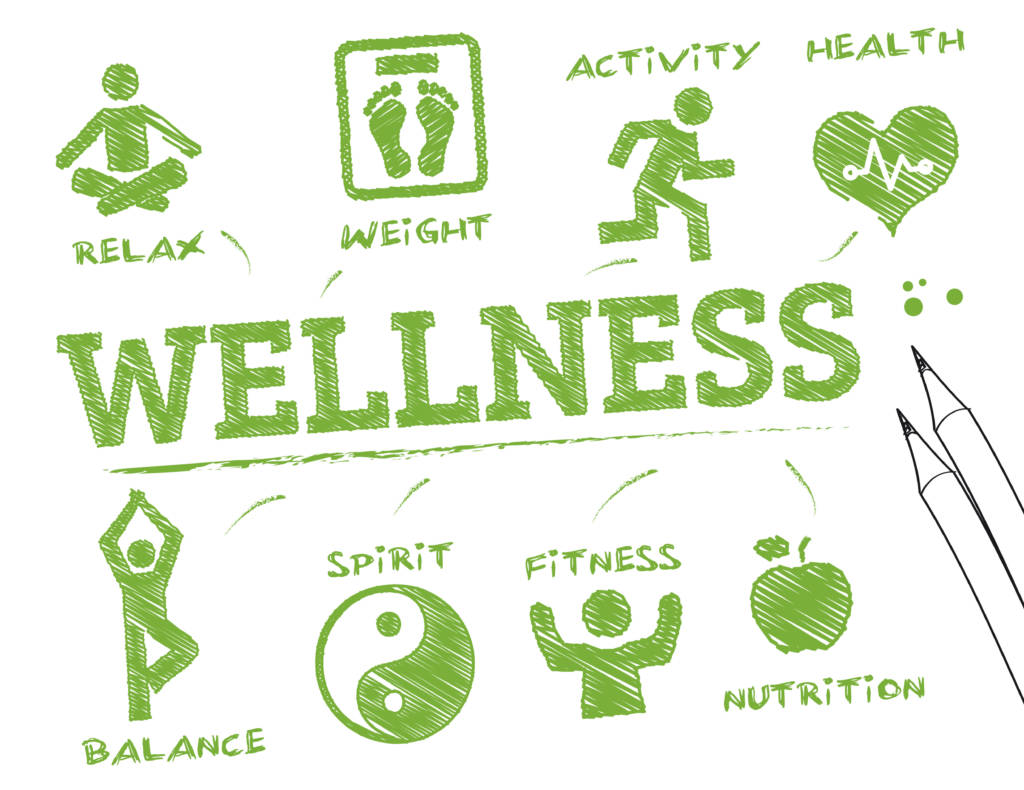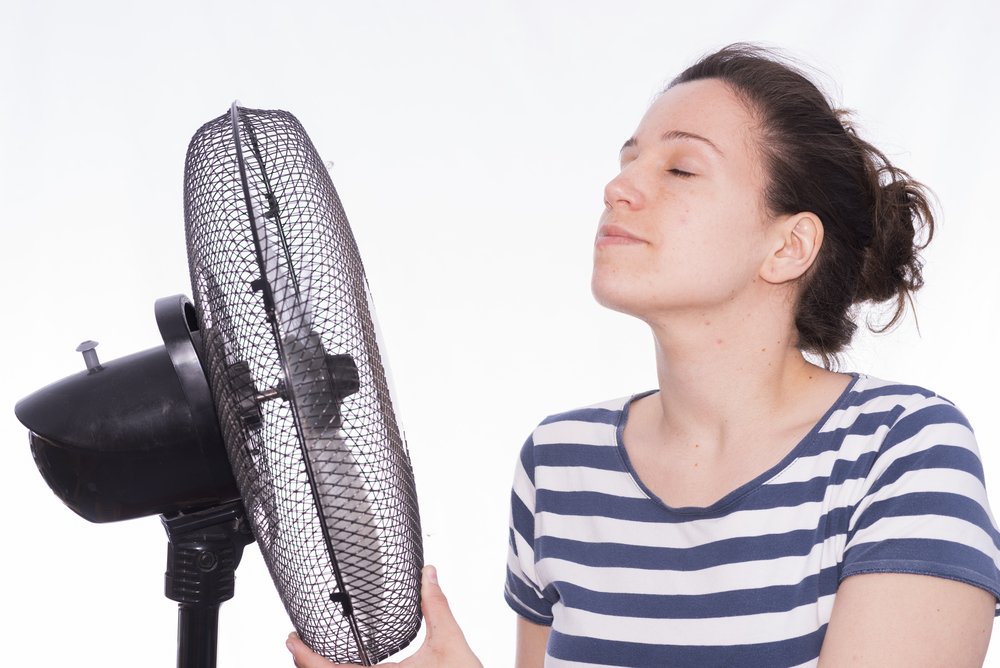For a substantial minority of women, hot flushes are a persistent source of discomfort into the late postmenopausal years. Although other medical conditions can cause them, hot flashes most commonly are due to menopause — the time when menstrual periods become irregular and eventually stop. In fact, hot flashes are the most common symptom of the menopausal transition.
Symptoms
During a hot flash, you might have:
- A sudden feeling of warmth spreading through your chest, neck and face.
- A flushed appearance with red, blotchy skin.
- Rapid heartbeat.
- Perspiration, mostly on your upper body.
- A chilled feeling as the hot flash lets up.
- Feelings of anxiety.
Overview
The frequency and intensity of hot flashes vary among women. Hot flashes may be mild or so intense that they disrupt daily activities. They can happen at any time of day or night. Night-time hot flashes (night sweats) may wake you from sleep and can cause long-term sleep disruptions.
Hot flushes are among the most frequent complaints of women during the menopausal transition, affecting up to 80% of women within the first year of cessation of menses. These common symptoms have been shown to negatively affect quality of life by disturbing sleep, interfering with work and leisure activities, and exacerbating anxiety and depression.
Identifying Modifiable Risk Factors
There is growing interest in identifying modifiable risk factors for hot flushes and developing alternate therapies for these symptoms. Identification of risk factors for hot flushes may help guide evaluation and treatment in this population group.
It used to be said that menopause-related hot flashes fade away after six to 24 months. But for many women, hot flashes and night sweats often last a lot longer—by some estimates seven to 11 years. The hormonal roller coaster that comes as a woman’s childbearing years wind down can trigger a range of hot flash symptoms. Also known as vasomotor symptoms, are often described as a sudden sensation of heat in the chest, face, and head followed by flushing, perspiration, and sometimes chills. Hot flashes and sweats that occur during sleep can make it hard to get a good night’s rest.
In the Study of Women’s Health Across the Nation (SWAN) is a multiracial/multiethnic observational study of the menopausal transition among 3302 women enrolled at 7 US sites. From February 1996 through April 2013, women completed a median of 13 visits. Analyses included 1449 women with frequent VMS. The main outcomes and measures were total vasomotor symptoms duration (in years) (hot flashes or night sweats) and post-FMP persistence (in years) into post menopause. The SWAN researchers found some women are more likely to deal with long-term hot flashes than others. Women who had their first hot flashes before their menstrual periods ended had hot flashes for an average of nine to 10 years. When hot flashes didn’t start until after the last menstrual period, the average duration was only about three and a half years. Even on the short end of the spectrum, that’s a long time to deal with hot flashes and night sweats.
- Women in the SWAN study who experienced hot flashes for a longer time tended to be:
- overweight
- current or former smokers
- stressed
- depressed
- anxious
- Ethnicity also played a role. African American women reported the longest duration of hot flashes (averaging more than 11 years), while Japanese and Chinese women had hot flashes for about half that time.
The first UK large study of the dimensions of hot flush/night sweats (HFs/NSs) experience amongst older women was in 2011, with the objective to examine the dimensions or predictors of experiencing HFs/NSs. This study reported on these variables in a large UK cohort of postmenopausal women.
- Despite being on average 10 years postmenopausal, 54% experienced HFs/NSs (frequency of 33 per week) that persisted across the age range.
- Few predictors of frequency were identified, but problem rating was associated with depressed mood, smoking, hysterectomy, skirt size increase and frequency of HFs/NSs.
- The prevalence of HFs/NSs in these postmenopausal women (48.5%) was predicted most strongly by anxiety, previous hysterectomy and past HT use.
- Past hormone therapy users who had discontinued treatment were more likely to have HFs/NSs that were more frequent and problematic.
It is also important to note that anxiety is associated with elevated levels of norepinephrine, which is known to play a role in thermoregulation. Stress also produces increased sympathetic responses, increasing norepinephrine and serotonin, which may affect the HF/NS threshold. The study highlights the need for strategies to help women to manage weight, and to reduce smoking and anxiety and depressed mood before and during the menopause transition are implicated.
Treatment of Hot flashes
The most effective is oestrogen-based hormone therapy. While hormone therapy is very effective at relieving hot flashes, women at older ages have higher risks of stroke, blood clots, and other health problems. So, it’s important that women explore a full range of treatment options — especially women likely to have persistent hot flashes.
Several non-hormonal medications can also help relieve hot flashes and night sweats.
These include some types of antidepressants, some drugs commonly prescribed for nerve pain, and some high blood pressure medications (clonidine).

For some women, non-medication measures can help
These include:
- Deep-breathing exercises when a hot flash starts
- Dressing in layers; lowering the thermostat
- Staying away from caffeine, alcohol, hot beverages, and spicy foods
- Target the underlying issue not just the symptoms
- Herbal botanicals / food supplements – if advised by a health professional
- Stress reduction techniques like meditation and mindfulness
- and doing your best to stay cool in general.
Conclusion
Doctors are taught that menopausal symptoms, when they occurred at all, last about three to five years. And therefore, that’s what they tell their patients. In fact, in the past decade, a number of studies have confirmed that for some women, menopausal symptoms can last a long time after menopause. What to do? Tell your doctor that many studies show that your continued hot flashes are not unusual, and ask what treatments are available.
Thank you for taking time to read this through.
Fiona Waring
Dip Nut, BSc.(Hons), MSc PHN, ANutr
Nutritional Therapist
M: +44 07957 267 964
eatyourgreens@fionawaring.com
‘Registered with the Association for Nutrition – www.associationfornutrition.org
Protecting the public and promoting high standards in evidence-based science and professional practice of nutrition.’
